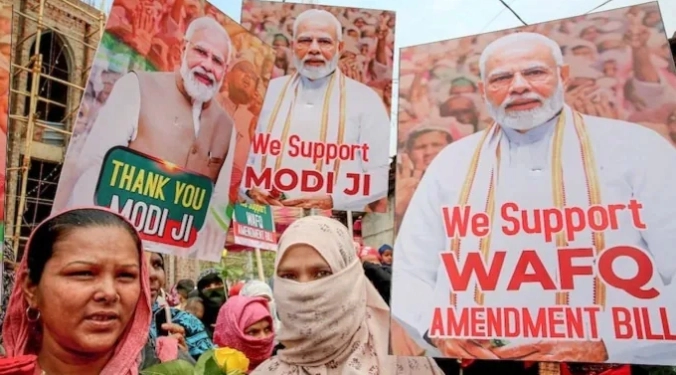
While several petitions challenging the Waqf Amendment Act have been filed in the Supreme Court by political parties and Muslim organisations, at least seven states have approached the top court in support of the legislation, seeking to intervene in the case and make their arguments before the Court.
These states argue that the Act introduces important reforms aimed at improving the management and regulation of Waqf properties, enhancing transparency, and ensuring better governance.
Madhya Pradesh: The state has argued that constitutional objections raised in the case -- pertaining to alleged discriminatory treatment, absence of judicial review, and arbitrariness -- are without merit and should be rejected at the outset.
Further, it added that the Act seeks to usher in substantial reforms in the management and regulation of Waqf properties by enhancing transparency, accountability, and governance mechanisms.
Chhattisgarh: According to Chhattisgarh’s plea, the Act is intended to make the Waqf Board more inclusive, with representation from different Muslim sects for better Waqf governance and administration.
The Waqf (Amendment) Act, 2005, establishes a transparent and accountable system for Waqf administration and aims to bring about a transformational shift in the management of Waqf properties, the state claims.
Assam: The state has pointed out that the newly inserted Section 3ee imposes a bar on the declaration of any land in Scheduled or Tribal Areas (Fifth Schedule or Sixth Schedule) as Waqf. In Assam, there are eight administrative districts, out of a total of 35, covered under the Sixth Schedule of the Constitution.
Rajasthan: It has been said that the law is not only constitutionally sound and non-discriminatory but also rooted in the values of transparency, fairness, and accountability and serves to protect the interests of both religious endowments and the broader public.
Rajasthan’s plea further stated that the statute does not create any unequal treatment nor discriminate against any religious group. It only prescribes a reasonable regulatory framework to prevent unlawful claims and added that pleas challenging the amendment regrettably fail to appreciate the on-ground realities faced by state administrations.
Maharashtra, Haryana, and Uttarakhand have also filed applications stating that the Amendment Act envisions a streamlined, technology-driven, and legally robust framework for managing Waqf assets while simultaneously promoting socio-economic development for the intended beneficiaries.